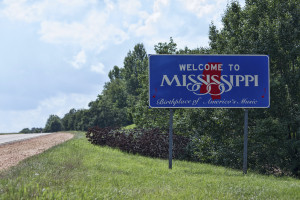
‘The biggest part of the case is going forward’: Fla. magistrate judge recommends some Miss. insurance steering cases continue
By onBusiness Practices | Insurance | Legal | Repair Operations
In the first major victory for the collision repairers nationwide who’ve sued the nation’s biggest car insurers, a Florida federal magistrate judge last week recommended some Mississippi shops’ steering allegations should stand.
U.S. Magistrate Judge Thomas Smith only felt three shops’ allegations of tortious interference– two against Progressive and one against State Farm — had enough evidence to survive a motion to dismiss.
He recommended that the other 23 plaintiffs’ claims of steering in Capitol Body Shop et al v. State Farm et al be thrown out for good, along with all 26 shops’ other state-level allegations of quantum meruit and violating the Mississippi shop choice law.
District Judge Gregory Presnell hasn’t ruled on Smith’s state-level recommendations. On Monday, Presnell dismissed with prejudice the federal antitrust and boycott claims the shops brought against insurers.
The shops’ attorney, John Eaves Jr. of Jackson, Miss.-based Eaves Law Firm, was encouraged by Smith’s findings.
“The steering has always been the big hammer,” Eaves said. “… The biggest part of the case is going forward.”
Eaves said the plaintiffs could provide more evidence of steering to keep the other 23 shops in the game and would indicate as much in a response to Smith’s recommendations.
“We think that will be corrected,” Eaves said. “… In our response, we’ll clear that up with the court.”
‘Actual damage and loss’
Smith supported examples in which the shops claimed a customer was actually steered, as opposed to allegations in which an insurer tried to steer a customer but the plaintiff still got the business.
Alexander’s Body Shop would allegedly have gotten the business of owner Will Alexander’s aunt and uncle in separate 2014 incidents, but State Farm allegedly told his relatives they had to go to a State Farm direct repair program shop for an estimate. Given the distance and effort of getting the vehicle to the State Farm shop, the aunt and uncle left their vehicles there, according to the lawsuit.
AutoWorks Collision lost the business of another customer — who received a botched repair — thanks to Progressive’s efforts, the lawsuit claims. As Smith quoted it:
Progressive told (the customer) that AutoWorks would charge her more for repairs, that if she didn’t go to their preferred shop, she would be liable for storage fees, that she would have to pay more for repairs if she went to her preferred shop, that if she went to their preferred shop, Progressive would guarantee the work but would not if she went to the shop of her choice. (The customer) capitulated to the pressure and took her vehicle to Progressive’s preferred shop … in Jackson for an estimate, where Progressive persistently told her to leave the vehicle … “because you’re already here, it makes more sense.”
AutoWorks found unrepaired damage to the front end, the vehicle was out of alignment and pulled to the right, the engine cradle bolts were not properly replaced, welds were incomplete and without corrosion protection, the air conditioner condenser was not properly installed or recharged. Overall, the safety of the vehicle … was compromised.
In the third allegation Smith left standing, a customer wanted to use the nearby Walkers Collision, but Progressive not only promised her a lifetime guarantee, it told her “she was required to choose from one of three repair facilities, one in Louisiana, one in Gulfport (over an hour away) or one local. Ms. Mitchell did not wish to use any of those, she wished to use the local shop she had selected but, based upon Progressive’s statements that she had to use one of the three shops they named, she felt she had no choice if she wanted her car fixed. ”
Smith wrote that the shops had backed up these claims by arguing that since the insurers knew they wouldn’t pay more than a fixed amount anyway and had made false claims, the steering was malicious.
State Farm, Progressive and other insurers have argued that there was nothing illegal in requiring an estimate be done at a particular location, nor was there anything illegal about relating facts about DRP and non-DRP shops.
Mississippi law demands “actual damage and loss” — other states might be more flexible on this — for tortious interference, which could make it difficult to bring other steering claims. After all, if you’ve lost somebody’s business, you’d never know it unless they told you.
Other claims
Quantum meruit: Quantum meruit involves getting a benefit without paying for it. In this case, the shops argued that they were benefiting insurers by doing the full repair for customers — thereby fulfilling the insurer’s duty to return the cars to pre-loss condition.
Shops have argued they have no choice but to take insurance work — between 75-95 percent of each plaintiff’s business — or go under. But Smith held fast to the idea that if a shop knows an insurer will only pay X, they can’t perform additional work and expect to be paid for it even if they’re not in a DRP.
“Each time a Plaintiff accepted a new job, it knew what the Defendant insurance company was going to pay for the repair,” he wrote. “Plaintiffs were free to attempt to renegotiate with Defendants or refuse the work.”
Effectively, a shop’s options seem to be to take the work and suck it up, take the work and bill the customer for the difference, or reject the repair entirely.
Unfortunately, this is bad news for the customer, who probably has no idea about any of this when buying insurance. The policy might specify aftermarket parts, but does it really alert customers that the insurer won’t pay for other procedures like scanning/calibrating their sensors or blending their C-pillar? They’ll probably have to find out the hard way and then be sadder and wiser at policy renewal time.
Mississippi shop choice: Smith looked at two factors on this one. The first was Mississippi legal precedent involving the shop choice law’s language:
No insurer may require as a condition of payment of a claim that repairs to a damaged vehicle, including glass repairs or replacements, must be made by a particular contractor or motor vehicle repair shop; provided, however, the most an insurer shall be required to pay for the repair of the vehicle or repair or replacement of the glass is the lowest amount that such vehicle or glass could be properly and fairly repaired or replaced by a contractor or repair shop within a reasonable geographical or trade area of the insured.
Though shops argued that the “properly and fairly repaired and replaced” language also matters here, Presnell had already said it didn’t under Mississippi law, and Smith agreed.
Shops also argued they had the right to bring a “private right of action” on behalf of customers allegedly wronged through steering-related violations of the law.
Unfortunately, nobody in Mississippi has ruled on if they did, and Smith felt the shops didn’t. He backed this up by citing another part of Mississippi Code which empowers the insurance commissioner to enforce insurance code violations.
“This provision leads me to conclude that the Mississippi legislature intended for the insurance commissioner, not private citizens, to enforce the statute,” Smith wrote.
Considering that one of the plaintiffs in the case unsuccessfully ran against the Mississippi insurance commissioner out of frustration, that enforcement might not be coming anytime soon.
Images:
A Mississippi welcome sign is shown. (Jens Lambert Photography/iStock/Thinkstock)
Mississippi Capitol. (wellesenterprises/iStock/Thinkstock)

